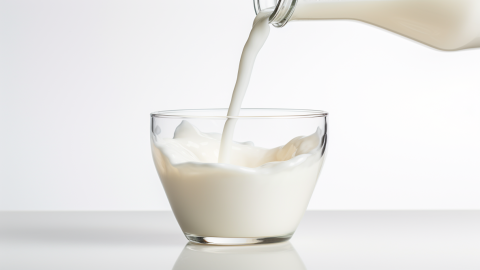Can I drink milk after a vaginal delivery?
Generally speaking, women can drink milk after a vaginal delivery, but it should be consumed in moderation. Detailed explanations are as follows:

Milk contains abundant nutrients, including protein, fat, vitamins, calcium, trace elements, amino acids, and iron. These components positively contribute to postpartum recovery and lactation. After a vaginal delivery, a woman's body is relatively weak; drinking milk in moderation can provide energy, aid in physical recovery, enhance resistance and immunity, and improve breast milk quality, which benefits breastfeeding.
Although milk is nutritious, postpartum women should consume it in moderation after a vaginal delivery and avoid excessive intake. Overconsumption may burden the gastrointestinal tract, leading to symptoms of indigestion such as bloating, abdominal pain, diarrhea, and vomiting. Additionally, postpartum women should avoid drinking cold milk. It is recommended to warm the milk before consumption to prevent gastrointestinal irritation and discomfort such as diarrhea caused by cold beverages. If a postpartum woman is allergic to milk or has lactose intolerance, she should avoid consuming milk to prevent allergic reactions or worsening gastrointestinal symptoms.
In addition to moderate milk consumption, postpartum dietary habits should avoid overeating, control portion sizes, prevent postpartum obesity, and aid in body shape recovery.





